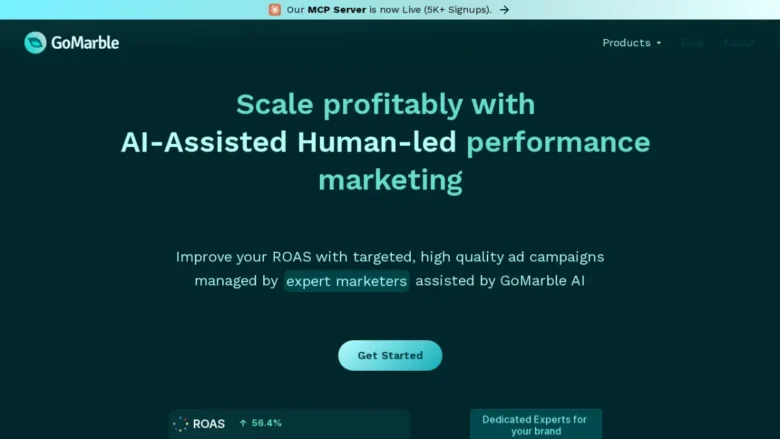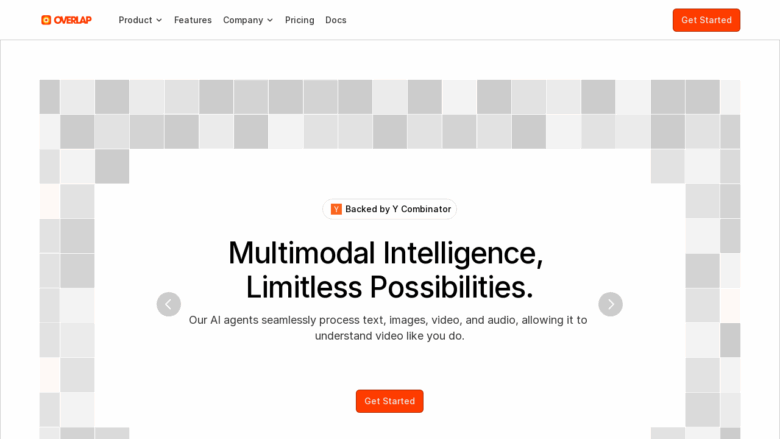Hey there, fellow marketing enthusiasts! I’ve been diving deep into the world of AI marketing tools, and today I’m super excited to share my hands-on experience with LTV.ai. If you’re struggling with generic marketing campaigns that just don’t hit the mark anymore, you’re going to want to read this comprehensive breakdown of what might be your new secret weapon.
What is LTV.ai and Why Should You Care?
LTV.ai is a cutting-edge AI marketing platform that’s shaking up how e-commerce brands connect with their customers. The platform’s core mission is pretty straightforward: ditch those boring mass marketing campaigns and replace them with hyper-personalized, one-to-one customer interactions that actually convert.
The name itself tells you what they’re after – LTV stands for Lifetime Value, which is basically the holy grail of e-commerce metrics. Their AI technology aims to boost this critical metric by 18-23% through personalized email and SMS marketing that feels genuinely human.
Technical Infrastructure That Powers LTV.ai
Let’s get a bit nerdy for a moment (I promised 10% professional, right?). The platform operates on a sophisticated AI engine that processes and analyzes customer data to create what they call a “Segment of 1” – where every single message is uniquely tailored to the individual recipient.
The infrastructure is built around seamless integration capabilities with:
Shopify (including Shopify Plus)
BigCommerce
Oracle Commerce
Custom e-commerce platforms (via conversion pixel)
The implementation process is surprisingly straightforward for such a powerful tool:
DNS record changes (approximately 10 minutes)
ESP (Email Service Provider) synchronization (around 3 minutes)
Shopify app installation or conversion pixel setup (just 2 minutes)
Key Features That Make LTV.ai Stand Out
1-to-1 Contextualized Personalization
Unlike traditional marketing automation platforms that simply insert a customer’s name, LTV.ai creates what feels like a personal shopper experience. The AI studies individual browsing patterns, purchase history, and engagement data to craft messages that speak directly to each customer’s unique preferences and needs.
This isn’t just about saying “Hey [FirstName]” – it’s about understanding that Sarah who bought those winter boots last month might be interested in waterproofing spray now that the rainy season is approaching.
AI-Powered Product Recommendations That Actually Make Sense
We’ve all received those awkward product recommendations that make us wonder if the brand knows us at all. LTV.ai’s recommendation engine is different – it doesn’t just push bestsellers or high-margin products. Instead, it analyzes individual customer behavior to suggest products that genuinely complement their past purchases or browsing history, with personalized reasoning that explains why the recommendation makes sense.
Proactive AI-Driven Customer Segmentation
Most marketing platforms require you to manually create customer segments. LTV.ai flips this approach on its head by proactively identifying new segments based on emerging patterns in customer behavior. This means you’ll discover opportunities you might have missed with traditional analytics.
The AI continuously learns from customer interactions, refining its understanding of your audience over time. This dynamic segmentation capability is particularly valuable for brands with diverse product catalogs and customer bases.
Self-Optimizing Discount Strategy
I absolutely love this feature because it solves one of the biggest profit-killers in e-commerce: discount dependency. LTV.ai’s smart coupon system only offers discounts when its algorithms determine they’re necessary to convert a specific customer. This means you’re not training customers to wait for sales or eroding your margins unnecessarily.
For price-sensitive customers, the AI might offer a well-timed discount. For brand loyalists who would purchase anyway, it focuses on value-add messaging instead. This intelligent approach preserves margins while maximizing conversion opportunities.
AI-Powered Conversational Capabilities
Perhaps the most impressive technical achievement is LTV.ai’s ability to maintain contextual conversations with customers over email and SMS. The AI doesn’t just send messages – it can understand and respond to customer replies, creating a continuous dialogue that feels remarkably human.
This conversational data becomes a goldmine for further optimization, as each interaction teaches the AI more about individual preferences and communication styles. The system becomes increasingly effective over time as it builds a more nuanced understanding of each customer.
Proactive Feedback Collection That People Actually Respond To
According to LTV.ai, their feedback collection system achieves response rates 12x higher than standard survey methods. This is because feedback requests are contextually relevant and conversational rather than feeling like generic survey forms.
The insights gathered through these natural conversations provide valuable direction for product development, marketing strategies, and overall business decisions.
Real-World Performance Metrics and Case Studies
The platform boasts some impressive numbers:
Average increase in repeat purchase rates (specific percentage not provided in the source)
Multiple times more revenue per send compared to traditional methods
Significant increases in owned channel sales
One particularly striking case study features Spongellé, which reportedly achieved:
435% uplift in conversion rate
5.26x increase in revenue per send
Another testimonial from One Kings Lane mentions a “double-digit percentage increase in customer LTV” that translated to an almost one-to-one increase in profitability.
LTV.ai vs. Competitors: How Does It Stack Up?
LTV.ai vs. Klaviyo
While Klaviyo offers robust email marketing automation with decent segmentation capabilities, it doesn’t match LTV.ai’s level of individualization. Klaviyo relies more on pre-defined segments and flows, whereas LTV.ai’s AI creates truly personalized conversations at scale. However, Klaviyo may offer more design flexibility and has a longer track record in the market.
LTV.ai vs. Omnisend
Omnisend excels at omnichannel marketing but lacks the sophisticated AI capabilities that drive LTV.ai’s personalization engine. While Omnisend provides decent automation across multiple channels, it doesn’t offer the same level of conversational AI or self-optimizing discount strategies.
LTV.ai vs. Attentive
Attentive has made a name for itself in SMS marketing with strong compliance features and engagement tools. However, LTV.ai appears to offer more advanced AI capabilities across both email and SMS, with deeper personalization based on customer behavior analysis. Attentive may have an edge in SMS-specific features, while LTV.ai offers a more holistic approach to customer communication.
Integration Ecosystem and Technical Compatibility
LTV.ai seems to prioritize seamless integration with major e-commerce platforms:
For Shopify users, there’s a dedicated app for easy installation
BigCommerce integration is supported natively
Oracle Commerce (formerly ATG) compatibility is available
Custom store setups can be accommodated through conversion pixel implementation
This flexibility allows brands to implement LTV.ai without overhauling their existing tech stack, which is always a plus when evaluating new marketing technologies.
Pricing Model: Aligned Incentives
One refreshing aspect of LTV.ai is their performance-based pricing approach. Rather than charging a fixed monthly fee regardless of results, they align their compensation with the value they create for your business. As they put it: “If we make you nothing – we charge you nothing.”
This pricing structure reduces the risk of adoption and ensures the company remains motivated to drive real results for their clients. It’s a confident stance that suggests they truly believe in their product’s effectiveness.
Practical Implementation Considerations
For technical marketing teams considering LTV.ai, there are a few implementation details worth noting:
DNS changes are required to enable sending from your domain without affecting deliverability
API integration with your current ESP ensures proper synchronization of unsubscribes and opt-in status
Access to customer data is necessary for personalization, but appears to follow standard security protocols
The platform seems designed for brands with established customer databases rather than those just starting out
Is LTV.ai Right for Your E-commerce Brand?
Based on the available information, LTV.ai appears most suitable for:
Established e-commerce brands with existing customer data
Businesses struggling with declining email and SMS performance
Companies looking to reduce discount dependency while increasing conversion rates
Brands ready to move beyond basic segmentation to true personalization
Marketers frustrated with low engagement rates on broadcast messages
The platform might be less ideal for:
Brand new businesses with limited customer data
Companies primarily focused on acquisition rather than retention
Brands with extremely limited product catalogs where cross-selling is minimal
Future Developments and Potential Growth Areas
While the current offering focuses primarily on email and SMS marketing, the AI technology behind LTV.ai could potentially expand to other channels:
On-site personalization could use the same customer insights to customize web experiences
In-app messaging might benefit from the conversational capabilities already developed
Loyalty program optimization seems like a natural extension given their focus on lifetime value
The Technical Evolution of AI-Powered E-commerce Personalization
What LTV.ai represents is part of a broader shift in how AI is transforming e-commerce marketing. We’re moving from rule-based automation to truly intelligent systems that can understand customer behavior patterns and respond appropriately.
This technical evolution enables brands to scale personalized experiences that were previously only possible with dedicated human sales associates. As the technology continues to advance, we can expect even more sophisticated applications of AI in customer engagement strategies.
For e-commerce marketers keeping an eye on emerging ai marketing platforms, conversational email marketing tools, and customer lifetime value optimization software, LTV.ai represents an interesting case study in how machine learning can be applied to solve specific business challenges in the retail space.











